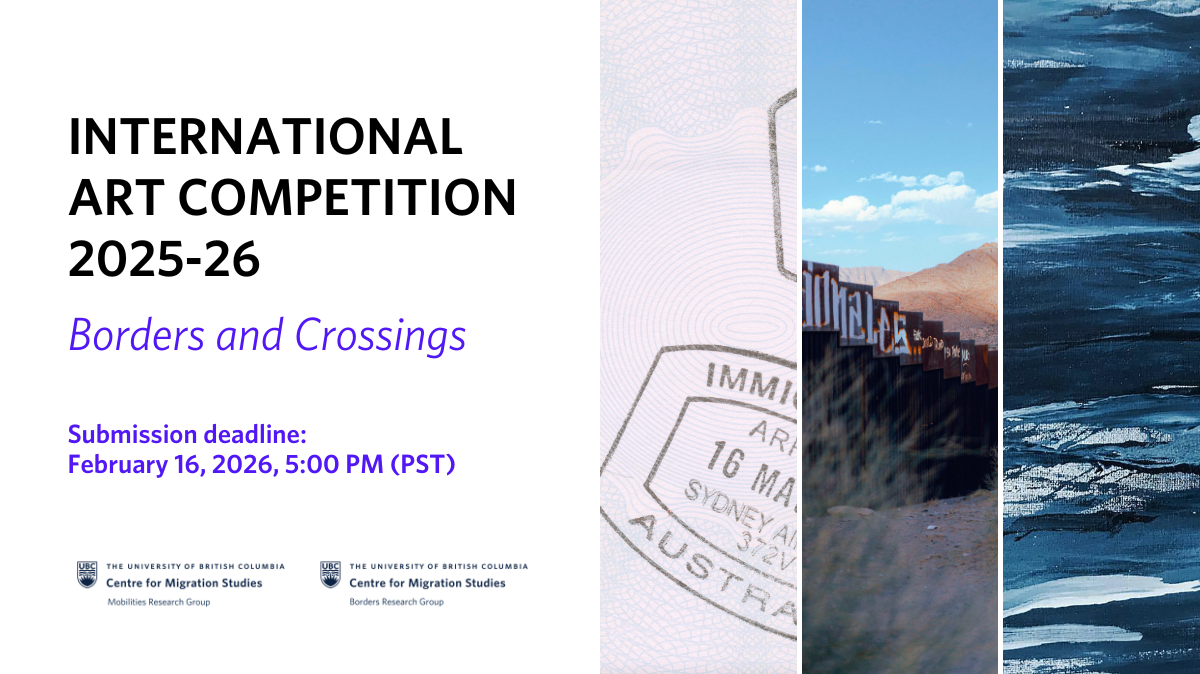

CMS is pleased to announce seven new researchers joining the Bridging Divides research team at UBC.
Learn more about their projects below.
Leveraging Machine Learning to Study Immigrant Renting via Online Advertisements in Vancouver


Julia Harten, Assistant Professor, UBC School of Community and Regional Planning, UBCV
Mirroring global trends, a growing share of immigrants to Canada are renting, but the evidence landscape on immigrant renting is patchy at best. Rental markets in general present unique research challenges, making it difficult to get an accurate reading of rental housing activity. Recent studies have leveraged online rental listings for new insights, but the vast majority consider dominant-language platforms only. In places with substantial immigrant communities, such as many Canadian cities, this narrow focus is highly problematic. To address this gap, Harten will examine Vancouver’s rental market using online listings from two platforms, one English, and one Chinese.
AI Empowerment Initiative: Bridging Immigrants with Small and Medium-sized Enterprises (SMEs) and Nonprofits through Tailored AI Training Programs


Annamma Joy, Associate Dean, Research and Professor, Faculty of Management, UBCO
Co-applicants: Ying Zhu, Julien Picault and Madeleine Ransom
This research addresses the challenges immigrants in Canada face regarding digital skill development and employability within the context of economic digital transformation. As artificial intelligence (AI) becomes integral to economic activities, digital literacy among immigrant populations is crucial for equitable workforce integration and national competitiveness. Joy’s central research question is: How can tailored AI literacy and skills training for immigrants enhance their employability within Canadian SMEs and nonprofits, and contribute to Canada’s digital transformation?
Evaluating the Effectiveness of Advanced Digital Technologies to Support Immigrant Professionals’ Integration into the Canadian Labour Market


Anusha Kassan, Associate Professor, UBC Educational Studies, UBCO
This research will investigate the effectiveness of advanced digital technologies (ADT) in supporting the labour market integration of immigrant professionals in Canada, focusing on two case studies of digital tools—one powered by AI and one not powered by AI. The overarching goal of this study is to evaluate the effectiveness of ADT in supporting the labour market integration of immigrant professionals in Canada.
From Great Firewall to Global Connections: Dual Digital Platforms, Identity, and Integration Among Chinese Immigrants in Canada


Xiaojun Li, Associate Professor, Political Science, UBCV
This study will investigate the impact of digital communication tools, particularly the continued use of Chinese origin platforms like WeChat and the adoption of mainstream Canadian platforms, on the integration of Chinese immigrants into Canadian society. More specifically, the research addresses the following questions: How does the use of Chinese-origin platforms like WeChat influence Chinese Canadians’ perceptions of their identity, societal belonging, and domestic and global politics, including Canada-China relations? How do Chinese immigrants react to exposure to Canadian digital platforms? To what extent do the findings from Chinese Canadians apply to similar immigrant groups in other countries with comparable demographic and geopolitical contexts?
Online Dating in Canada: An Immigrant-Native Born Comparison


Yue Qian, Associate Professor of Sociology, UBCV
When talking about settlement and integration, we often focus on helping immigrants get jobs, but what about their needs for love and companionship? Forming a satisfying intimate relationship benefits immigrants’ mental and physical health, sense of belonging, and social integration in the host society. As digital technologies penetrate people’s lives, online dating has become a primary way couples meet. This project will collect original data from a large-scale national survey to investigate the use and implications of online dating in Canada, with a focus on the immigrant-native born comparison.
Humanizing Technologies: A Survival Toolkit Navigating the Artificial Intelligence Era in Migration Studies


Annie Wan, Associate Professor, Creative Studies, UBCO
This interdisciplinary project leverages mixed reality (MR), artificial intelligence (AI), migrants’ oral histories, and qualitative research to develop innovative solutions for multifaceted challenges faced by first- and second-generation immigrants. These challenges include cultural differences, generation gaps, communication barriers, career struggles, family dynamics, and mental well-being. The research focuses on enhancing cultural resilience and fostering stronger connections among different generations within migrant communities.
Digital Place, Belonging, and Infrastructure: Leveraging Technology-Enabled Intergenerational Homesharing to Strengthen Immigrant Integration in Canada


Ying Zhu, Associate Professor, Management, UBCO
Co-applicants: Samantha Biglieri, Raza Mirza, Shirley Chau, and Neha Gupta
This research tackles the major challenges faced by permanent and temporary immigrants in securing safe and affordable housing, compounded by language and cultural barriers that hinder their social integration. An effective and promising solution is homesharing, which pairs those seeking affordable housing with people who have empty rooms. Canada HomeShare (CHS), the only non-profit homesharing program in Canada, has embraced this innovative approach by offering a technology-enhanced intergenerational housing program. Zhu’s research question is: How can the homesharing program leverage digital communication tools to improve intergenerational housing for immigrants and older adults, addressing housing challenges, ageism, and social isolation?


